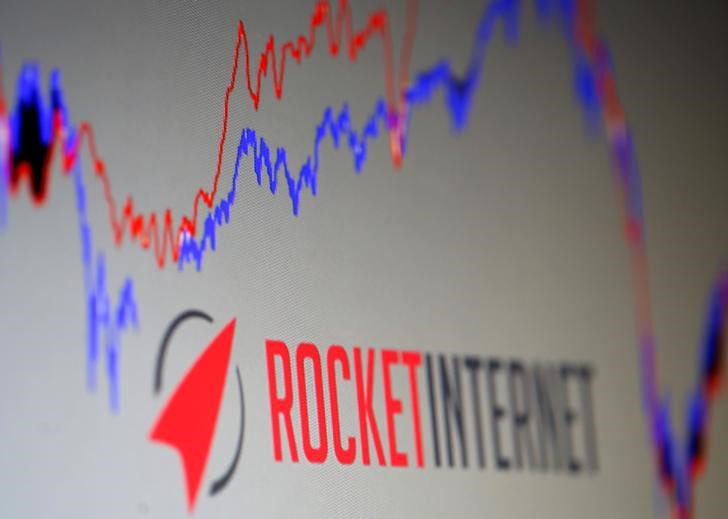By Geoffrey Smith
Investing.com -- One of Europe’s most high-profile incubators for startups is abandoning the stock market.
Rocket Internet (DE:RKET), which can count online fashion house Zalando (DE:ZALG), Delivery Hero (DE:DHER) and meal kit company HelloFresh (DE:HFGG) among its success stories, said on Tuesday it will delist from the Frankfurt Stock Exchange, saying it didn’t need public investors any more, thank you very much.
“The significance of capital markets as a financing source has diminished,” it said in a statement. “A delisting will permit Rocket Internet to pursue a long-term approach in its strategic decisions.”
It added that “adequate access to capital is secured outside the stock exchange.”
It had better be. The Samwer brothers haven’t made many friends among retail investors in the six years since they listed Rocket: the shares that listed at 42.50 euros are now worth only 44% of that (share buybacks in the last couple of years mean that total returns are somewhat less awful than the share price alone indicates).
Normally, founders take their listed companies private when they think they are undervalued, demonstrating their conviction by offering a premium to the prevailing price. The Samwers, by contrast, are offering 18.57 euros a share, 2% below Monday’s close. A clearer one-fingered salute to free shareholders is hard to imagine.
Short-term financial pressures on its remaining portfolio companies – almost all of which are still loss-making – appear likely to have played a significant role. Rocket had already swung to a loss in the first quarter after having to slash the valuation of its portfolio in response to the first wave of the virus. Although the market has treated many loss-making startups indulgently since then (even going so far as to propel Delivery Hero into the Dax), Rocket’s last update hinted heavily that some of its investments wouldn’t survive the downturn.
The Samwers made a point of building Rocket around copycat sites – Zalando, its best-known project, was based on Zappos.com while HelloFresh and Delivery Hero were modelled on the likes of Blue Apron (NYSE:APRN) and GrubHub (NYSE:GRUB). Consequently, a bet on Rocket was always more of a bet on the Samwers’ ability to execute, rather than on their vision.
The 50% drop in the share price over six years suggests that they have been found wanting on that score. Even allowing for the nature of venture capital, a business that requires regular exits before an investment develops its full potential, the operational performance and the share price performance of HelloFresh, Delivery Hero and Zalando have improved conspicuously as Rocket withdrew from them. That suggests a little more than just unfortunate timing on behalf of the venture capitalist.
Likewise, the failure of one of its biggest holdings, Global Fashion Group, to turn a profit, and the inability even of Alibaba (NYSE:BABA) to make a success of e-commerce platform Lazada since buying it also point to deeper-rooted problems with the Samwer model.
Shareholders can console themselves that – by taking one last modest hit - they won’t have to worry about it for much longer.
